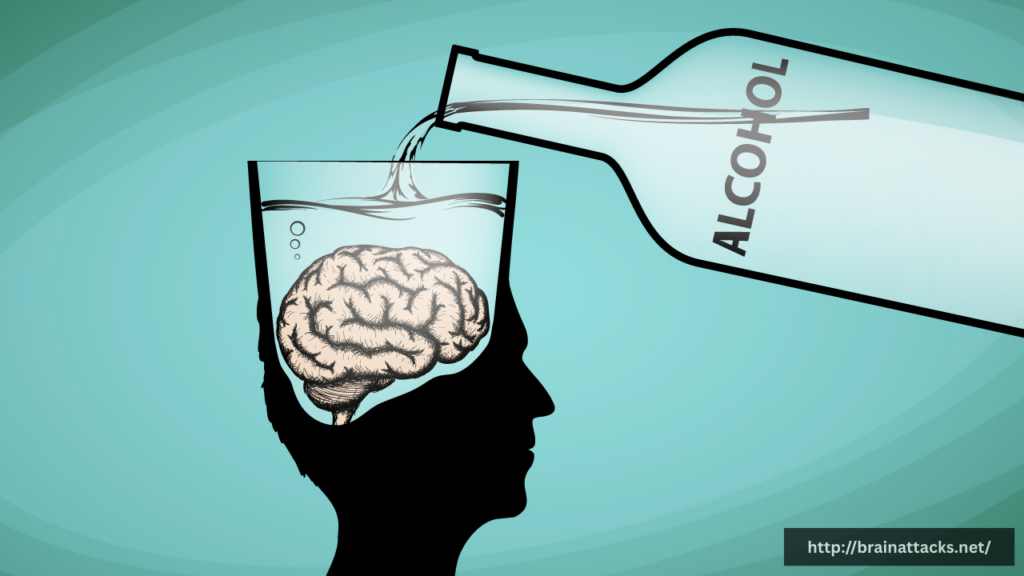
Drug and alcohol abuse not only disrupts the brain’s chemistry and structure but also triggers a powerful inflammatory response that can cause long-term damage. This inflammation is often overlooked but plays a critical role in the progression of addiction and the neurological decline associated with substance abuse. Understanding the inflammatory effects on the brain can help highlight the serious risks of substance abuse and emphasize the importance of early intervention and recovery.
How Substance Abuse Triggers Brain Inflammation
The brain is a highly sensitive organ, and it is vulnerable to inflammation caused by both drugs and alcohol. When substances are abused, they trigger an immune response in the brain, activating microglia—the brain’s resident immune cells. These microglia are typically responsible for defending the brain against infections and injuries, but in the case of substance abuse, they can become overactive and contribute to neuroinflammation.
- Alcohol: Chronic alcohol consumption directly damages brain cells, leading to the release of pro-inflammatory cytokines—small proteins involved in the immune response. These cytokines can promote inflammation and further harm brain tissue, particularly in areas like the hippocampus, which is involved in memory and learning.
- Drugs: Certain drugs, such as methamphetamine, cocaine, and opioids, cause neuroinflammation by triggering oxidative stress and the release of inflammatory markers. Methamphetamine, for example, increases the production of free radicals in the brain, leading to cell damage and inflammation.
The Impact of Neuroinflammation on Brain Health
Neuroinflammation plays a central role in the cognitive, emotional, and behavioral effects of substance abuse. Chronic inflammation can impair the functioning of neurotransmitter systems, disrupt brain cell communication, and even contribute to cell death in critical areas of the brain.
- Cognitive Decline: Inflammation impairs neuroplasticity, the brain’s ability to form new connections and adapt to new information. This leads to memory loss, difficulty learning new skills, and decreased overall cognitive function.
- Mood Disorders: Inflammatory processes in the brain have been linked to the development of anxiety, depression, and other mood disorders. The brain’s stress response system, including the hypothalamic-pituitary-adrenal (HPA) axis, becomes dysregulated by chronic inflammation, contributing to emotional instability.
- Neurodegeneration: Long-term inflammation in the brain accelerates neurodegenerative diseases such as Alzheimer’s disease and Parkinson’s disease. Substances that cause chronic inflammation can increase the risk of these conditions, leading to premature aging of the brain and cognitive decline.
The Vicious Cycle of Inflammation and Addiction
Neuroinflammation creates a vicious cycle, where the brain’s inflammatory response exacerbates addiction and vice versa. As substance abuse continues, inflammation increases, which in turn enhances drug cravings and compulsive use. The brain becomes more dependent on the substance to cope with the emotional and cognitive dysfunction caused by neuroinflammation.
Additionally, inflammation can impair the brain’s ability to regulate stress and emotion, which often triggers the desire to use substances as a form of self-medication. This cycle further deepens the grip of addiction and makes recovery more challenging.
Can the Brain Recover from Inflammation?
The good news is that the brain has the ability to heal, but recovery from neuroinflammation requires time, abstinence from substances, and proper medical intervention. The brain’s inflammation can be reduced through anti-inflammatory medications, cognitive therapies, and lifestyle changes like proper nutrition, exercise, and mindfulness practices. Reducing inflammation can promote brain healing, improve cognitive function, and stabilize mood over time.
Conclusion
The inflammatory effects of drug and alcohol abuse have far-reaching consequences on the brain’s health. Neuroinflammation impairs cognitive function, destabilizes mood, and accelerates neurodegenerative diseases, making addiction a more complex and dangerous condition. Understanding the role of inflammation in addiction underscores the importance of early intervention, treatment, and long-term recovery strategies to support brain healing and well-being.